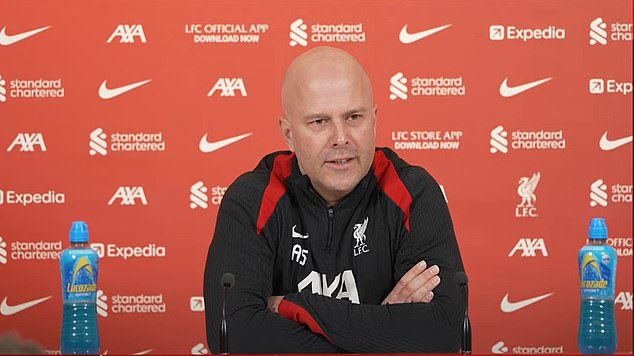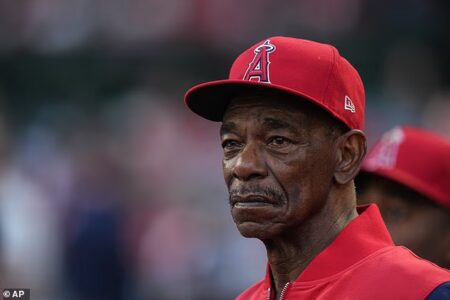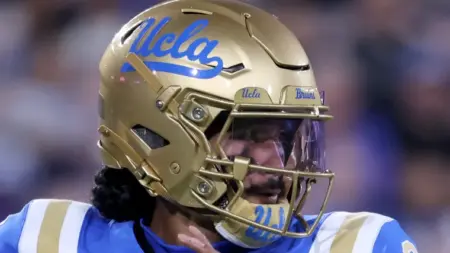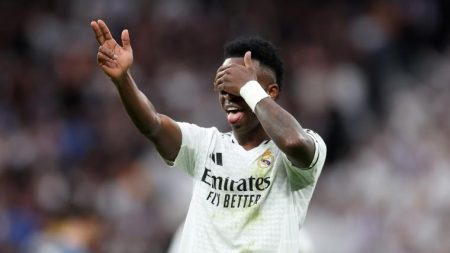A Turbulent Merseyside Derby: Curtis Jones’ Red Card and the Emotional Fallout
In a fiercely contested Merseyside derby, Liverpool and Everton ended in a thrilling 2-2 draw, but the match will be remembered for its four red cards, including one for Liverpool midfielder Curtis Jones. Jones and Everton’s Abdoulaye Doucoure were both sent off after a heated confrontation following the final whistle, adding another layer of drama to an already charged atmosphere. Doucoure’s celebration in front of the away fans after Everton’s late equalizer seemed to be the final straw for Jones, who was visibly incensed and confronted his rival aggressively.
Arne Slot’s Perspective on Curtis Jones
Liverpool’s new boss, Arne Slot, has offered a balanced and understanding response to the incident involving Jones. While acknowledging the need for Jones to show better judgment, Slot praised the midfielder for his passion and commitment to the team. "The good thing is we have played so many games," Slot said. "He got a second yellow, so that’s only one game. Next Wednesday there is a game, he comes back from an injury so he already missed a few games." This statement reflects Slot’s pragmatic approach to the situation, emphasizing the broader context of Jones’s recent injury and the team’s busy schedule.
The Impact on Team Dynamics
Jones’s red card means he will miss Liverpool’s upcoming clash with Wolverhampton Wanderers this weekend, serving a one-match suspension. This absence is particularly significant as it leaves Liverpool short on midfield options, with only Dominik Szoboszlai, Ryan Gravenberch, and Alexis Mac Allister likely to start. However, Jones is expected to return for the midweek game against Aston Villa, having received two yellow cards rather than a direct red card. Slot’s decision to address Jones’s behavior constructively, while also recognizing his positive contributions, demonstrates a nuanced leadership style that aims to foster both discipline and team spirit.
The Emotional Nature of the Derby
The Merseyside derby is one of the most intense and emotional fixtures in English football, and the events of the match reflect this. The tension between the two sets of fans and players was palpable throughout, with the late equalizer by Everton’s James Tarkowski triggering a wave of chaos, including fans running onto the pitch. The emotional impact of such moments can often lead to snap decisions and reactions that players might later regret. Slot’s acknowledgment of this emotional context is a sign of his empathy and understanding, which he hopes will help Jones and other players navigate such high-pressure situations more effectively in the future.
A Moment of Reflection
Slot also took the opportunity to reflect on his own actions during the match. He was dismissed alongside his assistant, Sipke Hulshoff, after confronting the referee, Michael Oliver. "I should have acted differently after the game as well," Slot admitted. "But it is an emotional game and sometimes people make the wrong decisions in an emotional moment and that’s what I did." This self-criticism and willingness to take responsibility set a positive example for his players, emphasizing the importance of composure and professional conduct even in the most challenging circumstances.
Looking Forward
Despite the setback, Liverpool’s focus will now shift to their upcoming matches, with the team looking to bounce back from the draw and the red cards. The absence of Jones for the Wolves game will be felt, but the team’s depth and the recent form of other midfielders offer reasons for optimism. Slot’s praise for Jones’s on-field performance and his commitment to discussing the incident with the player indicate a team that is united and determined to move forward positively. As Liverpool prepare for their next challenges, the lessons learned from the Merseyside derby will be crucial in shaping their approach to the remainder of the season.











